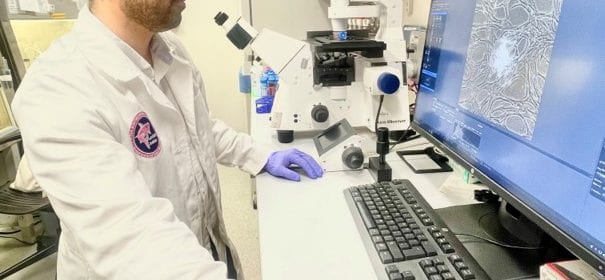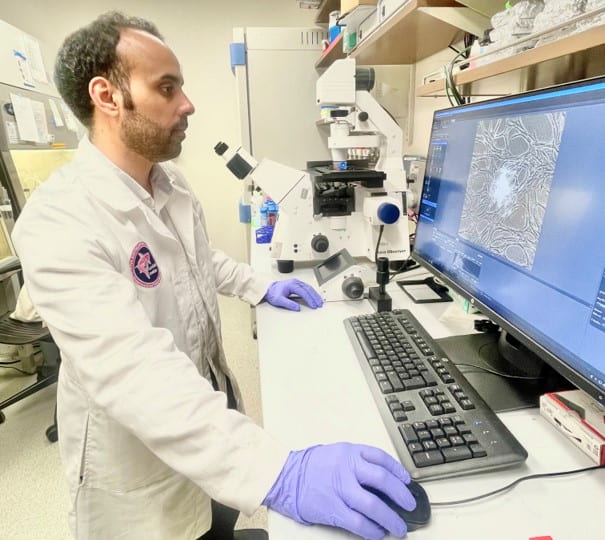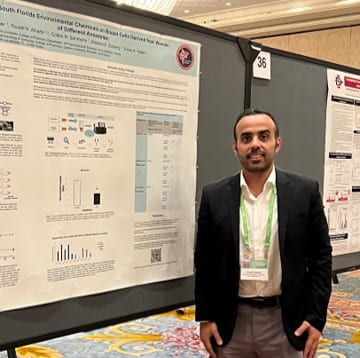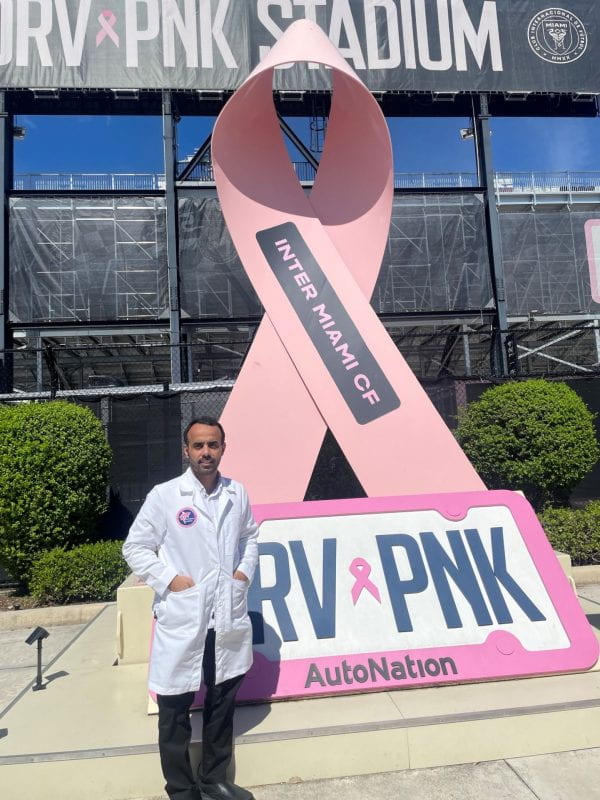Student Research Spotlight: Yousef Alharbi (Pharmacy)


Yousef Alharbi is pursuing a PhD in molecular medicine and pharmacogenomics from the Barry and Judy Silverman College of Pharmacy at Nova Southeastern University (NSU). Yousef is in the third year of his academic program under the mentorship of Dr. Jean Latimer. Yousef’s research efforts were also recently highlighted in NSU’s student-run newspaper, The Current (link below).
https://www.makomedia.nova.edu/2023/11/16/graduate-student-conducts-research-on-breast-tissue/
Briefly talk me through your research journey from your 1st day at NSU to today.
I started the Ph.D. program at NSU because I was interested in learning more about cancer disparities in outcomes. During my first year, I took part in a research orientation in different laboratories. This inspired me to study gene expression patterns in breast cancer and the role of the environment. With every beginning, there are challenges like dealing with new techniques, and the complexity of cancer made it hard for me to study, but with hard work, dedication, mentorship, and teamwork, I improved my research skills.
Throughout my time at NSU, I’ve presented preliminary findings of ongoing research at the 16th AACR Conference on The Science of Cancer Health Disparities in Racial/Ethnic Minorites and the Medically Underserved, September 2023. Additionally, I was a part of Dr. Latimer’s lab team to study Nucleotide Excision Repair in Gulf War Illness and the poster was presented by Dr. Stephen Grant at the Military Health System Research Symposium, September 2022. My research is currently in progress, and several publications will be underway.

What made you interested in the type of research you are currently working on?
In the US, breast cancer ranks as the second most common cause of cancer-related deaths among women. In the United States, there are currently over 3.8 million women who are either living with or have survived breast cancer.
The impact of breast cancer is enormous, as it is the second-largest cause of cancer-related deaths in women. This clearly illustrates the importance of continued advocacy, education, and study. In terms of differences across ancestry groups, women of African descent die from breast cancer at a rate about 40% higher than that of white women. Therefore, there are still gaps in our knowledge, care, and treatment, and addressing these gaps is essential to advancing the field.
What made you decide to work with your current research mentor?
During pharmacogenomics class, Dr. Latimer was teaching some lectures about breast cancer and how different this disease is between individual women. How important pharmacogenomics can be in treatment decisions impressed me, and Dr. Latimer and I decided to work together. A team under the direction of Dr. Latimer looks for environmental factors that cause DNA damage in human breast tissue. Dr. Latimer came up with a new way to make cells from healthy breast tissue and tumors from different stages. This will help scientists learn more about what causes breast cancer and figure out what kind of treatment might work best. Also, Dr. Latimer is committed to reducing the breast cancer disparities that affect women of different ancestries.
How does this work relate to your future career goals and what do you plan to do next?
My overall goal is to make a substantial contribution to the area of breast cancer research. After my PhD, I plan to go back to my home country and continue my work. I believe my current research provides a strong foundation for my future plan to expand my knowledge of the treatment approach, known as precision medicine, in which patients will receive individualized treatment based on their genetics and personal histories.
How has NSU helped you pursue and/or achieve personal and professional goals you have set for yourself?
NSU has contributed to my academic and research development. The labs are equipped with the most advanced tools for genetic sequencing and opportunity to collaborate with active researchers have all improved my learning experience. The NSU library and its extensive collection of academic tools, such as research databases and writing centers, have been valuable resources for the students.
What advice do you have for other students interested in getting involved in research?
My advice to students who are conducting research is to be curious and passionate. Explore your interests, find mentorship, and take on challenges. Research sometimes goes through ups and downs, but dedication always yields results.
